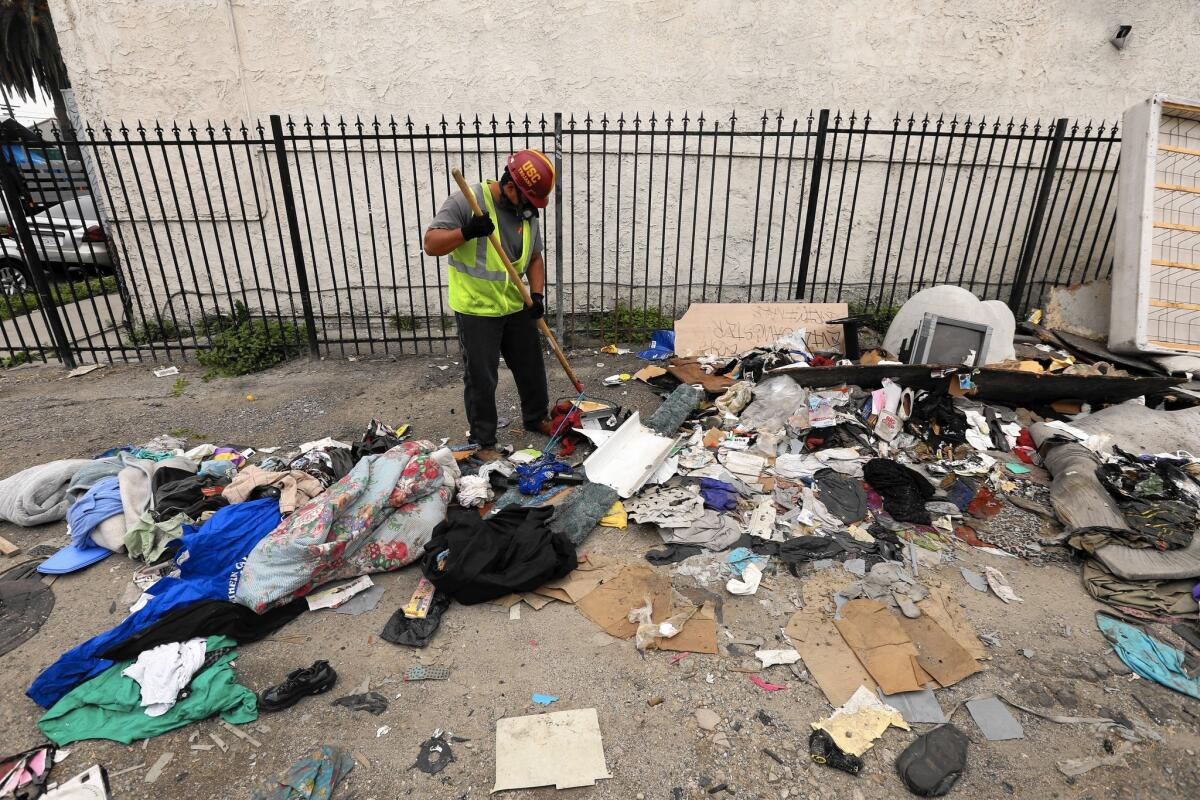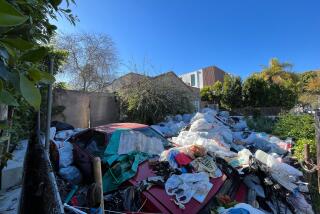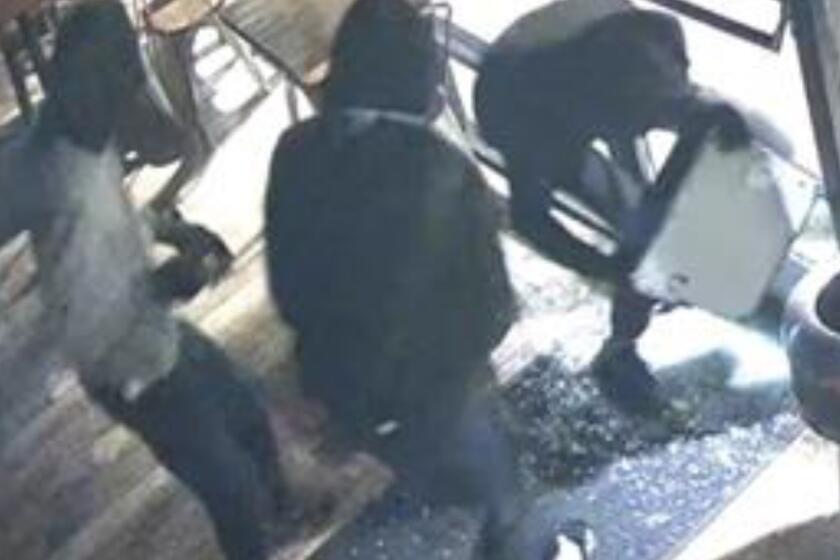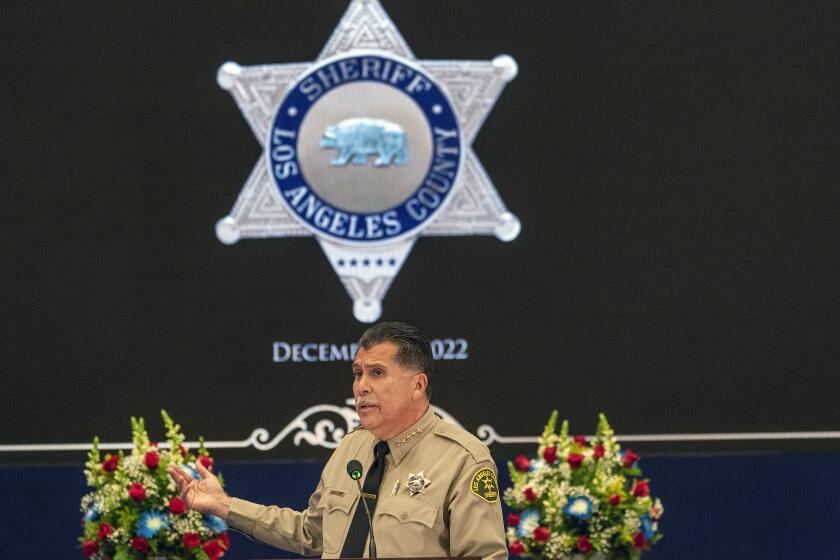L.A. City Council demands plan of action on trash pickup disparity

City Council members are demanding an explanation for why sanitation workers apparently ignored thousands of complaints about illegally dumped trash in some of Los Angeles’ poorest neighborhoods.
The Times reported this month that many poor areas of L.A. saw requests for clean-up service answered at dramatically lower rates than more affluent neighborhoods. Those disparities have persisted even as Mayor Eric Garcetti says he is devoting new attention and money to handling complaints from residents about refuse left on sidewalks and in alleyways.
In two motions submitted last week, seven council members cited The Times’ reporting and demanded that the sanitation department report on failures or irregularities of service across the city and create “a plan and a timeline for the bureau to eliminate and prevent any backlog of unresolved service requests and any disparities in service.” The motions could go before a council committee as soon as next month.
Councilman Gil Cedillo, who represents the areas of central and northeast L.A. that had some of the lowest levels of service in the Times’ analysis, said he wants to give sanitation director Enrique Zaldivar a chance to explain whether flaws in the department’s data might have exaggerated the problems. If the data are accurate, Cedillo said, he will insist on a plan for improvement.
“I want to be fair with them, but I want to be very clear that we cannot have a city that provides services for the most affluent at the cost of the most needy,” said Cedillo, who presented one of the motions.
The council scrutiny comes as Garcetti says his office is conducting its own internal investigation into backlogs of requests for cleanup of illegal refuse, a category that includes abandoned tires, used diapers, food scraps and dead animals, among other things.
The Times found that since 2010, more than one-third of logged requests to remove refuse from dozens of neighborhoods in central, northeast and South L.A. were left open — meaning no cleanup was ever recorded — even as sanitation workers closed out 99% of the complaints in other parts of the city.
Though overall response rates have improved since Garcetti took office in 2013, residents still see wide swings in service depending on where they live. For example, Boyle Heights on the Eastside has seen 30% of its requests for cleanup left pending since Garcetti took office. Over the same period, only 1% of complaints were left open over the same period in Van Nuys, in the San Fernando Valley, which had an equivalent number of service requests.
“It is an issue of respect,” said Councilman Marqueece Harris-Dawson, who was elected this year to represent South L.A.’s 8th District and signed on to a motion ordering the sanitation department to report within two weeks on the data analyzed by The Times. “It isn’t a question of government inefficiency. It’s deciding who’s important and who’s not.”
Sanitation officials say their own data are flawed because of the botched rollout last year of new computer software for tracking service requests. They caution that clean-up crews may have actually responded to some service requests but the bureau’s software failed to record it.
In response to questions from The Times in June, the sanitation bureau paid 20 temporary workers $13,000 to visit thousands of sites with open requests. Many of the locations were clean, sanitation officials say, although they don’t know whether the cleaning was done by city employees or others, such as nonprofit workers or neighborhood volunteers.
Follow @PeteJamisionhttps://twitter.com/PeteJamison and @bpostonhttps://twitter.com/bposton
More to Read
Start your day right
Sign up for Essential California for news, features and recommendations from the L.A. Times and beyond in your inbox six days a week.
You may occasionally receive promotional content from the Los Angeles Times.








